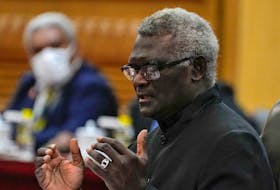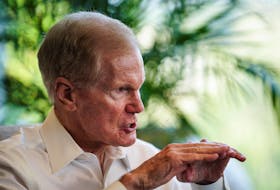While the political system in Newfoundland and Labrador is primarily a two-party system, the parties seldom share power. When voters go to the polls, often their primary purpose is not to vote for the representative of their choice, but to get whichever party is in power out. Consequently, every six to eight years, a landslide vote occurs and a new administration moves into the Confederation Building, often with very little experience in governing. The new administration, keen to undo the mistakes of the previous incumbent, generally sets out a bold new strategy — forgetting that politics is the art of the possible. Despite the cautions of civil servants who have seen it all before, the new administration makes brave promises and plans only to discover they lack the resources to carry out their ideas even though help is available.
Good leaders use every resource at their disposal. In Newfoundland and Labrador, there are thousands of capable, experienced, knowledgeable, and hard-working people who yearn to make their province a better place. These people are called volunteers and they operate more than 3,000 non- profit organizations across the province. Almost half of all Newfoundlanders and Labradorians over 15 years old volunteer. On average, each volunteer donates 151 hours a year to social causes, a total of more than 30 million hours. These efforts have huge economic effects. In 2015, The Community Sector Council Newfoundland and Labrador, in conjunction with Memorial University, analyzed the economic contributions of 45 non- profit organizations around St. John’s. They found that these organizations spent almost $61 million annually, creating 1,200 full-time jobs, and that this resulted in more than $169 million being spent on sales, goods, and services. This is not chump change. Non-profits have knowledge and expertise of which governments could make use.
Volunteers working through non-profit organizations work in schools, hospitals, libraries, community development organizations, tourism, youth recreational groups, environmental groups, social clubs, and more. Voluntary organizations are central to prosperous and successful democracies. They build networks of trust and reciprocity, they reflect common aspirations, and they are skilled at raising money and using it to good effect. While governments impose taxes and decide how to spend them, non-profits appeal to donors’ better selves to raise funds and then democratically decide how to use them. Yet, there is sometimes a social stigma attached to the term “volunteer,” as though volunteers are well-meaning amateurs but not up to the skill levels of professionals. This disparity is most common when governments are dealing with volunteer organizations; their attitude is often tainted with ideas like: “We are the government and we know what is best for you. We welcome your help but we are in charge.”
The lead organization for non-profits in Newfoundland and Labrador is the Community Sector Council (CSC), whose mission is to integrate social and economic development and provide leadership in shaping public policies. For 40 years the CSC has worked to increase its members’ knowledge and abilities through training sessions and seminars with leaders in the field of community development. Now non-profits have reached a tipping point in their development. CSC Chief Executive Officer Penelope Rowe says: “Non-profit groups collectively are coming-of-age. For years working in the trenches addressing client needs, existing on a shoestring-and-a-half, apologizing for seeking adequate resources while being expected to do extraordinary services without a steady flow of income, non-profits are now assertively articulating policy directions and espousing fresh ideas to address complex problems. If ever there was a time when the ingenuity of non-profit organizations should be paramount, it is now.”
The problem is that the private and public sectors are too often considered the essential players and non-profits a peripheral sector. Rowe says it’s a view that is out of date. The community sector has thousands of people who are knowledgeable, savvy, nimble, adaptable, efficient, and effective — qualities one seldom hears in describing government.
Non-profits are an army of volunteers who want to see their province grow. But they want to do more than throw ideas and suggestions over the garden wall in the hope that government might act on them. Non-profits want to be part of the economic process. They want a formal framework, a partnership with government through which they can bring their ideas to the table and be integrated into government policy. This should not be difficult. Community volunteers could be appointed to a special democracy advisory board or play a role in revitalizing legislative committees. Bringing volunteers and civil servants together to explore common aims could benefit both groups and result in huge exchanges of useful knowledge.
What is needed is the political will to integrate volunteers. Fortunately, politicians are well aware of the value of volunteers. If it were not for volunteers, how would politicians seeking election organize their efforts? How would they find people to put up signs, do fundraising, phone canvass, knock on doors, liaise with the media, or drive the house-bound to polling stations? Volunteers have their own mature organizations and want to use their knowledge in the governance of their province. Who better to champion their desire than politicians? Non-profit volunteers are a group whose time has come. They are waiting in the wings.
About the Author
Clifford Grinling (retired public servant) has written magazines and newsletters about Newfoundland and Labrador for 30 years. He was a writer of the community magazine, Decks Awash; editor and writer of the business publication, The Networker; Newfoundland correspondent for Northern Aquaculture; communications director for Enterprise Newfoundland and Labrador; and a Government of Newfoundland and Labrador speechwriter. He is also a former Jaguar mechanic and antique reproduction cabinetmaker.









